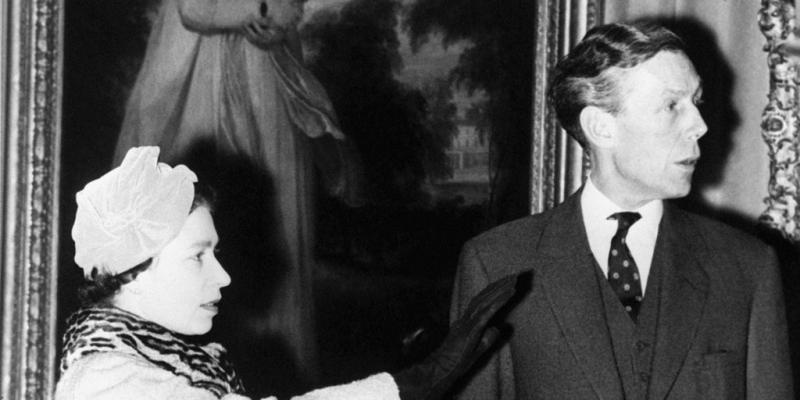Queen Elizabeth II wasn't told Anthony Blunt was a Soviet spy for years, declassified MI5 files reveal



By Astha Rajvanshi
LONDON — Queen Elizabeth II was not officially informed about the treachery of a senior palace courtier for nearly a decade, newly declassified documents reveal.
Anthony Blunt served as the chief art curator to the royal family, surveying the queen's pictures, overseeing the paintings in the royal collection and occasionally exhibiting her private treasures to the public. He endeared himself to the queen, so much so that he was given a knighthood — despite the fact that he had lived a double life as a Soviet spy.
The files, among a trove from the intelligence agency MI5 that were released Tuesday by Britain's National Archives, shed new light on the Cold War scandal at the heart of the British establishment. The saga has long captivated historians and featured in popular culture, from spy novels to Netflix's "The Crown."
Blunt confessed in 1964 to spying for the Soviet Union as part of the notorious Cambridge Five spy ring during World War II, but the queen would only be told the full story in 1973 — responding calmly and without surprise, according to the documents. His true identity was eventually exposed to the public by former British Prime Minister Margaret Thatcher, speaking in Parliament in 1979.
The security services closely guarded Blunt's identity given his prominent position, with only a few senior officials informed, though the secret may have been known regardless. The queen's private secretary, Martin Charteris, was told only that MI5 intended to interrogate Blunt due to his close ties with fellow spy Guy Burgess, who fled to the Soviet Union.
In all likelihood, the events "tell us more about the inability of the state to prosecute Blunt" than a concerted effort by MI5 to keep the late queen in the dark, historian Chris Smith, who authored a biography of Cambridge Five spy John Cairncross, told NBC News.
"To have informed Her Majesty or anyone else for that matter would have been potentially defamatory; it would also have been deemed embarrassing to Her Majesty," Smith said.
By the time Blunt was revealed to have been a spy, he had also become the consummate establishment figure, "which was acutely embarrassing" for the royal family, Smith added.
As such, concealing the information "would also have allowed the palace to truthfully deny that Her Majesty had any knowledge of Blunt's espionage activities, shielding her from personal embarrassment."
Then-MI5 Director General Michael Hanley noted that by November 1972, only Charteris and his deputy, Philip Moore, knew about Blunt at the palace.
"Charteris thought that the queen did not know and he saw no advantage in telling her about it now; it would only add to her worries," Hanley wrote in the documents.
It was agreed that the queen would only be informed officially if Blunt became seriously ill, in order to avoid any negative press scrutiny, according to the documents.
Charteris finally briefed her in March 1973, when Blunt was ill.
Her reaction was nonchalant, according to the files: "She took it all very calmly and without surprise: she remembered that he had been under suspicion way back in the aftermath of the Burgess/Maclean case," Charteris reported back.
"Obviously somebody mentioned something to her in the early 1950s, perhaps quite soon after the succession," Hanley noted at the time.
The files challenge the public narrative that the queen was made aware of Blunt's identity shortly after he confessed.
Containing Blunt's full confession for the first time, they reveal how MI5 agent Arthur Martin interrogated him in his flat above the Courtauld Institute, where he worked as its director from 1947 to 1974.
Blunt's "right cheek was twitching a great deal" when confronted, Martin wrote. Eventually, he was enticed to talk after being offered immunity from prosecution. "Blunt's answer was: 'Give me five minutes while I wrestle with my conscience,'" Martin wrote.
He continued: "He went out of the room, got himself a drink, came back and stood at the tall window looking out on Portman Square. I gave him several minutes of silence and then appealed to him again to get it all off his chest. He came back to his chair and told his story."
Blunt continued working as an adviser for the queen for years until he retired at 65. He held a single news conference when Thatcher outed him to the House of Commons before gradually fading out of the public eye.
Blunt died at age 75 in 1983 after becoming seriously ill with cancer.
Astha Rajvanshi







